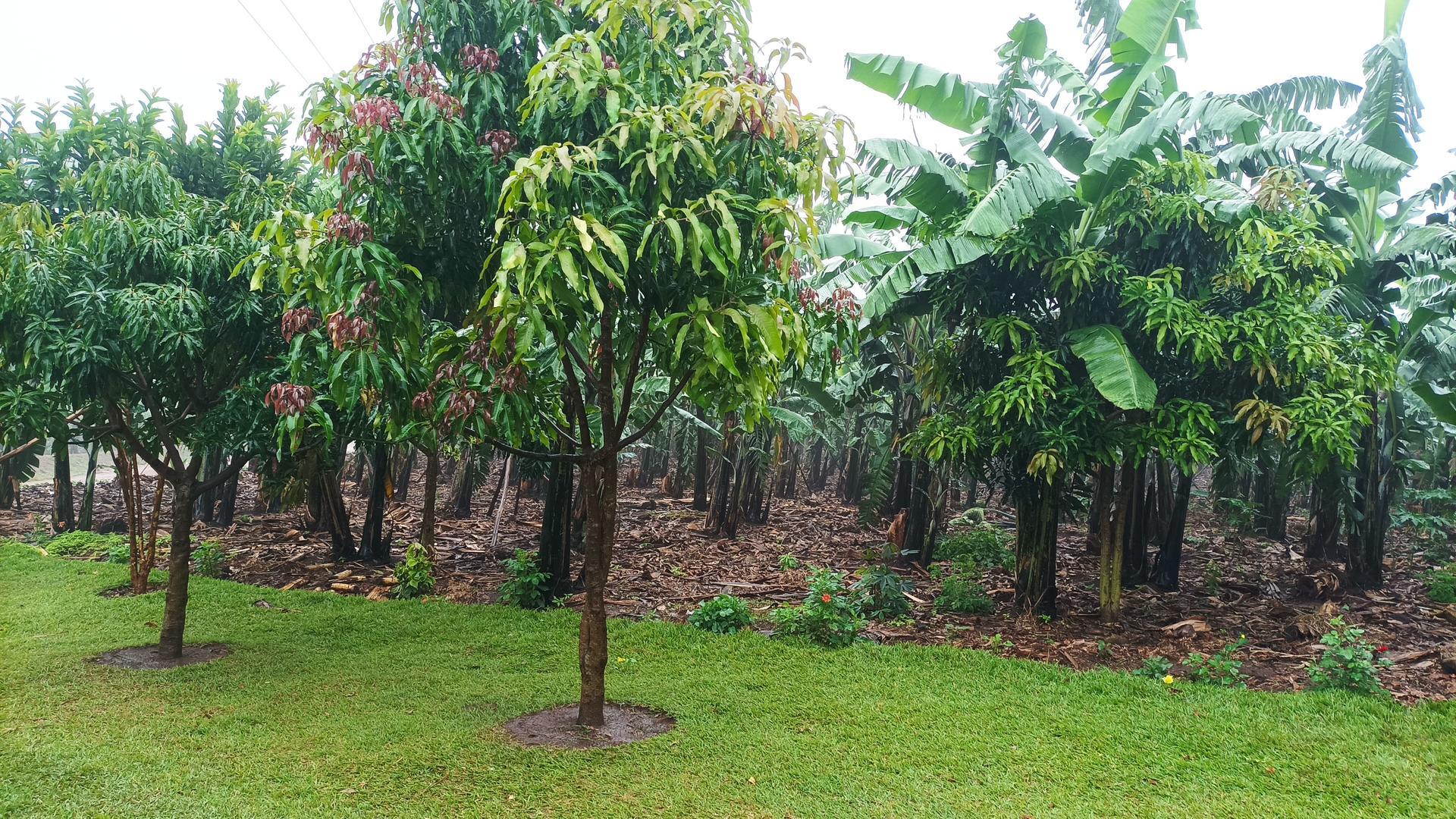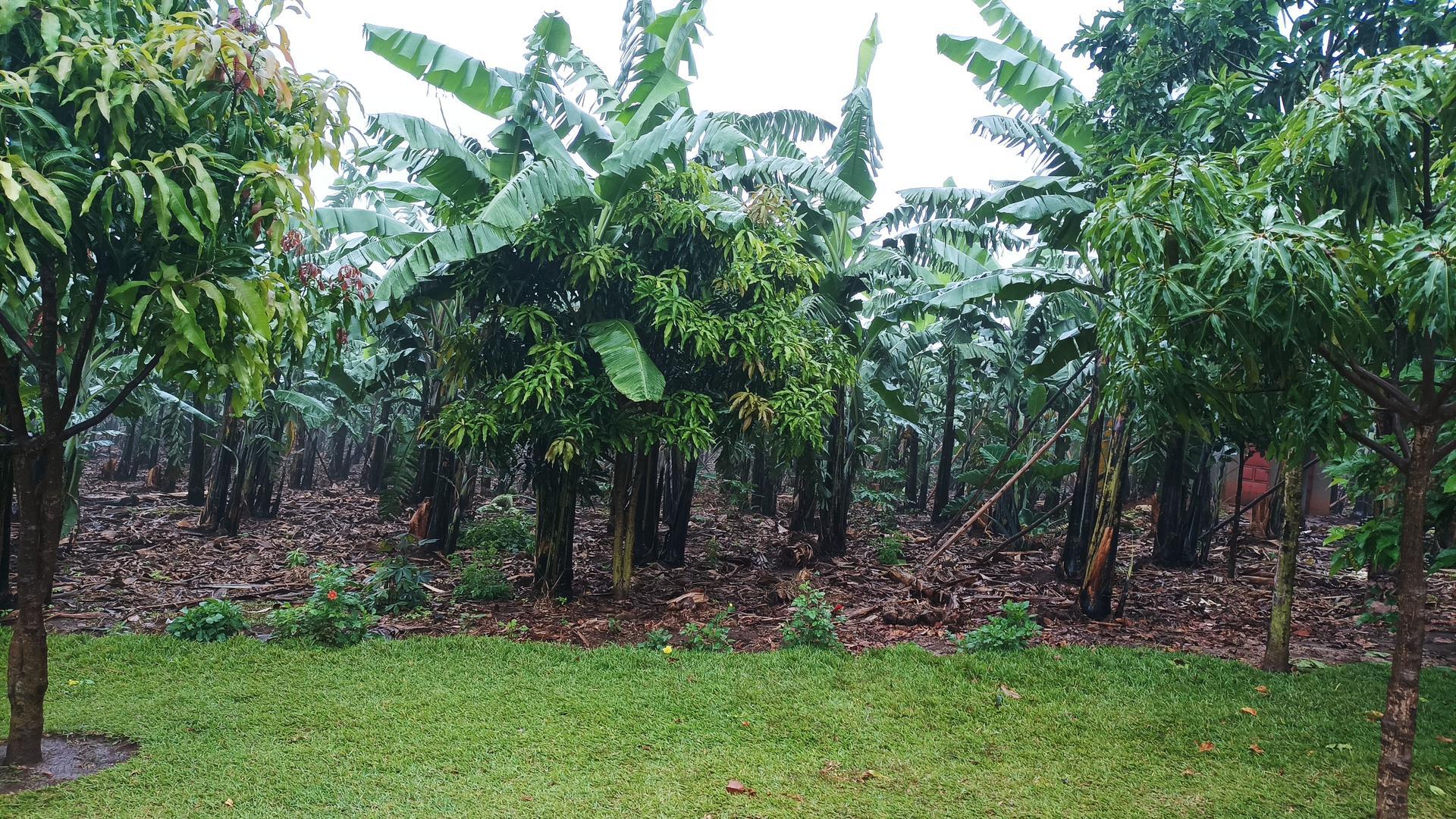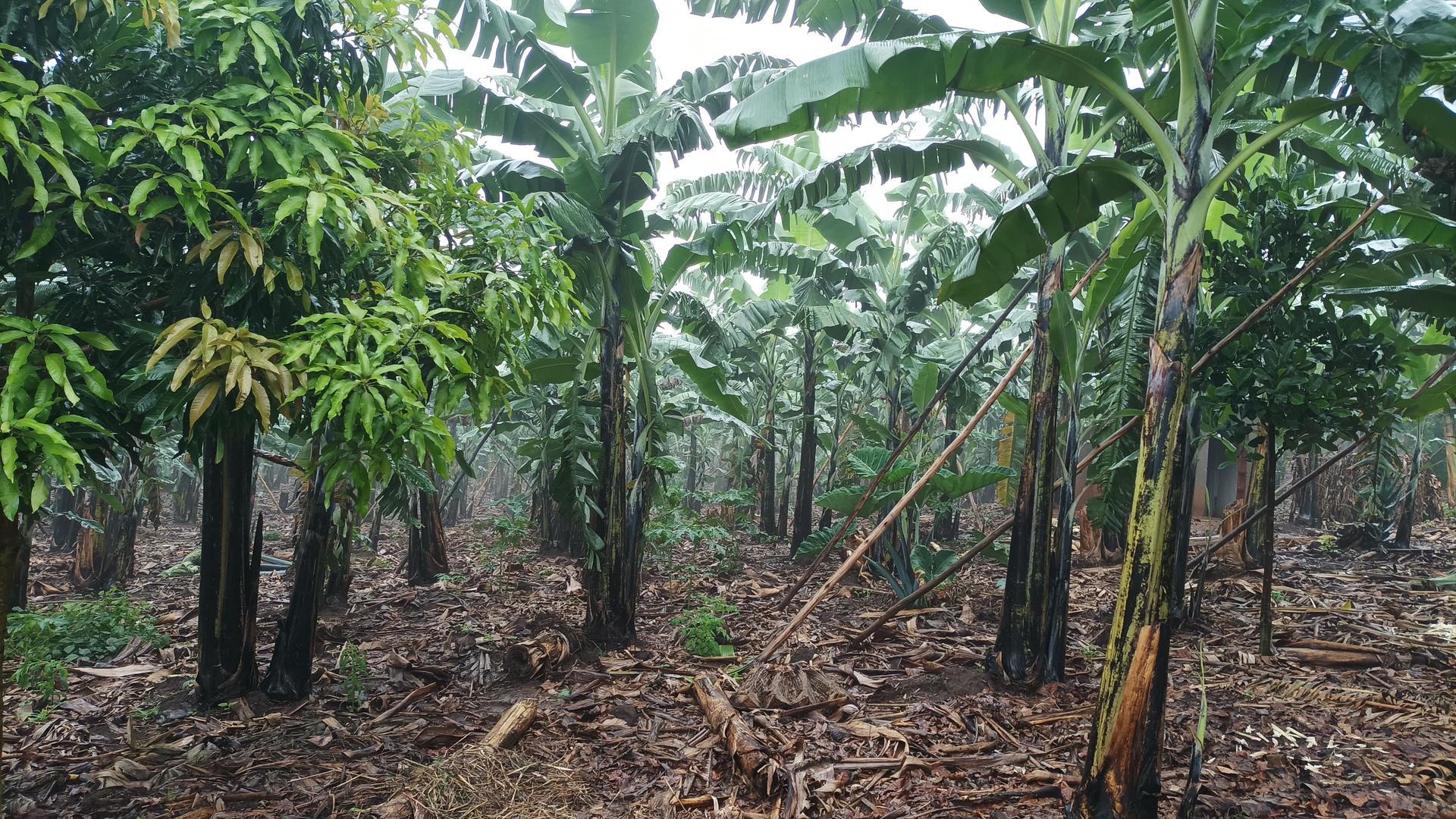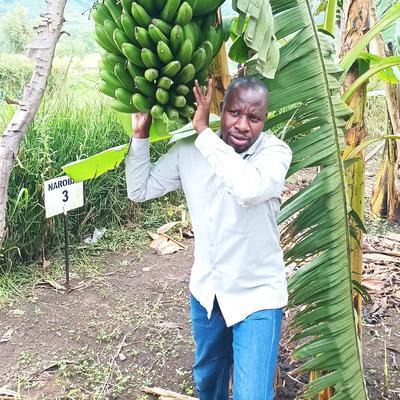From the Field Promoting Resilient Agroforestry Systems in Uganda: Insights from Fieldwork

The Alliance of Bioversity International and CIAT is leading a pioneering initiative in Uganda known as "Diversity for Resilient Agroforestry Banana plantations in East Africa (D4RABs)."
By: Enoch Kikulwe, Nasser Mulumba, Walter Ocimati, Samuel Kalimunjaye, Christopher Kettle
The D4RABs project aims to transform banana monocultures by incentivizing and empowering farmers to co-design and adopt an innovative polyculture concept to enhance resilience and ecological functionality of banana landscapes. Polyculture is a farming practice that involves growing multiple crops together in the same place at the same time with different arrangements. D4RABs will promote sustainable biodiverse agricultural practices by integrating diverse native and other understory tree species with banana cultivation. This will improve soil and crop health and mitigate the impacts of climate change for improved resilience of the systems.

Piloting of D4RABs
Rugaaga and Nyamuyanja Sub Counties in Isingiro district that have been chosen as project sites have a disintegrating monoculture banana cropping system with adverse effects on productivity and livelihoods. The field visits and meetings revealed the urgent need for interventions to address the impact of climate change on banana cropping systems. These include rising temperatures, prolonged dry seasons, windstorms, and shortening rainy seasons with often heavy rainstorms and high run-off. Communities emphasized the importance of promoting biodiversity and enhancing the ecological functionality of the banana systems to ensure long-term sustainability.
Farmers perspectives on needs and opportunities
To promote banana polycultures, stakeholders emphasized the need to: select suitable native tree species, comprehensively train on tree management, and best practices for their integration with banana. The engagement of both men and women in training sessions was highlighted as crucial for the successful adoption of polyculture systems. Additionally, the involvement of political leadership during project implementation was stressed as a key factor in ensuring the sustainability and scalability of the project.
In Nyamuyanja, a strong interest to experiment different banana polyculture systems was raised. This underscores the potential for widespread adoption of innovative polyculture practices within the local communities.

Building on local initiatives to diversify banana systems
There are existing networks in the district connecting farmers and farmer organizations with local, national, public organizations, non-governmental organizations (NGOs), and research institutions. These actors are working with farmers to develop diversified production systems incorporating both high-value crops and traditional food production systems. Therefore, the project aligns with the district's vision of greening Isingiro, and the local leadership has shown remarkable support of building on local initiatives to diversify banana farming systems. The District Production Officer, Mr. Aloysius Karugaba, and the district speaker, Mrs. Nimusiima Mayleen, emphasized the importance of the project, highlighting its well-planned nature and the active involvement of the political and technical arms of the district in the initial stages of project design. Their endorsement and support are pivotal in ensuring the successful implementation and long-term sustainability of the project.
Conclusion
The D4RABs project represents a significant step towards promoting resilient agroforestry systems in Uganda. By addressing the challenges posed by climate change and monoculture cropping, the project is poised to bring about positive transformation in banana cultivation practices. The active engagement of local stakeholders and the enthusiastic support from the district leadership are promising indicators of the project's potential success. As the project progresses, it is expected to contribute to the broader goal of sustainable agriculture and environmental conservation in the region. The insights gained from the fieldwork underscore the importance of community involvement, knowledge sharing, and the adoption of innovative agroforestry systems.
The Team

Chris J Kettle
Principal Scientist, Lead Tree Biodiversity for Resilient Landscapes
Enoch Kikulwe
Senior Scientist
